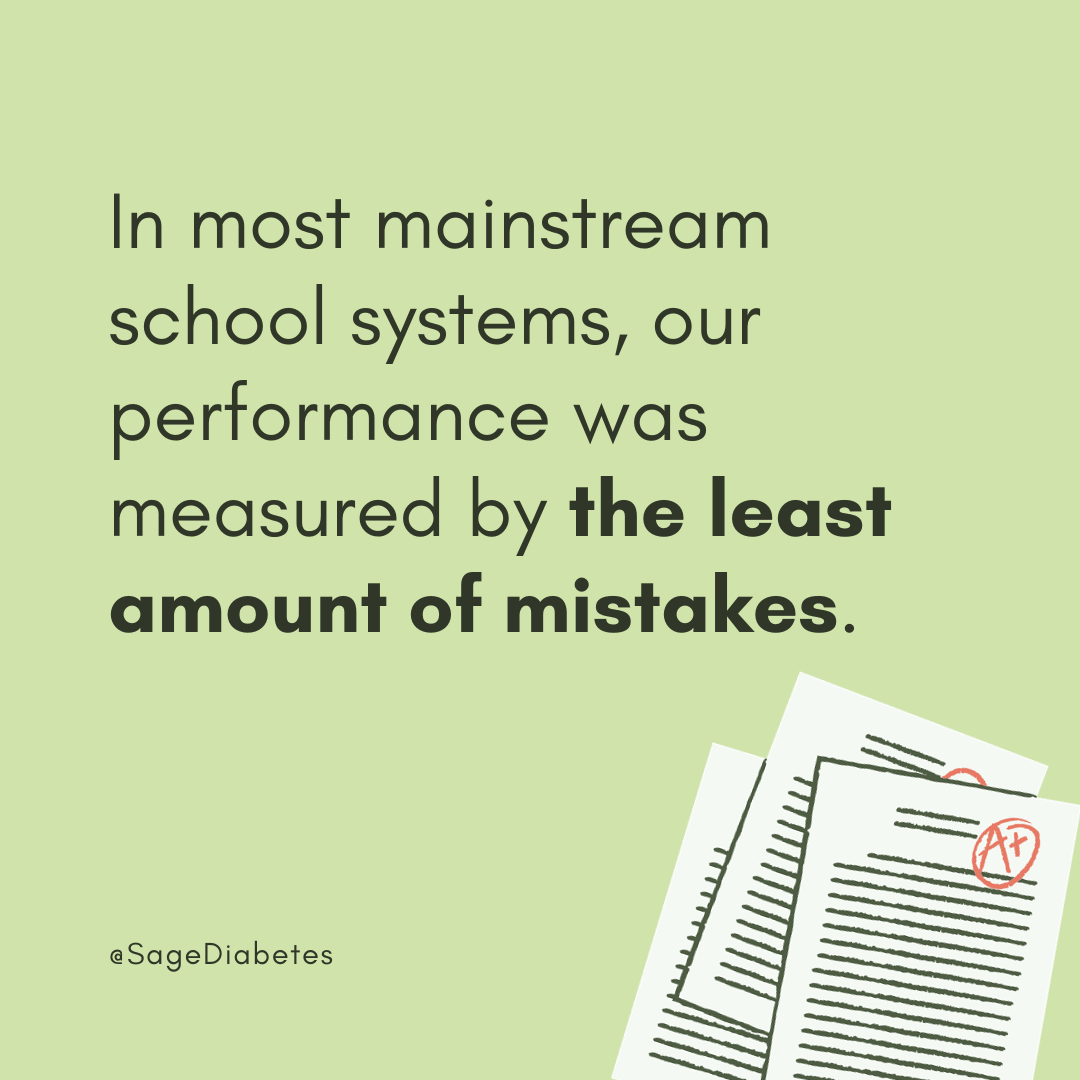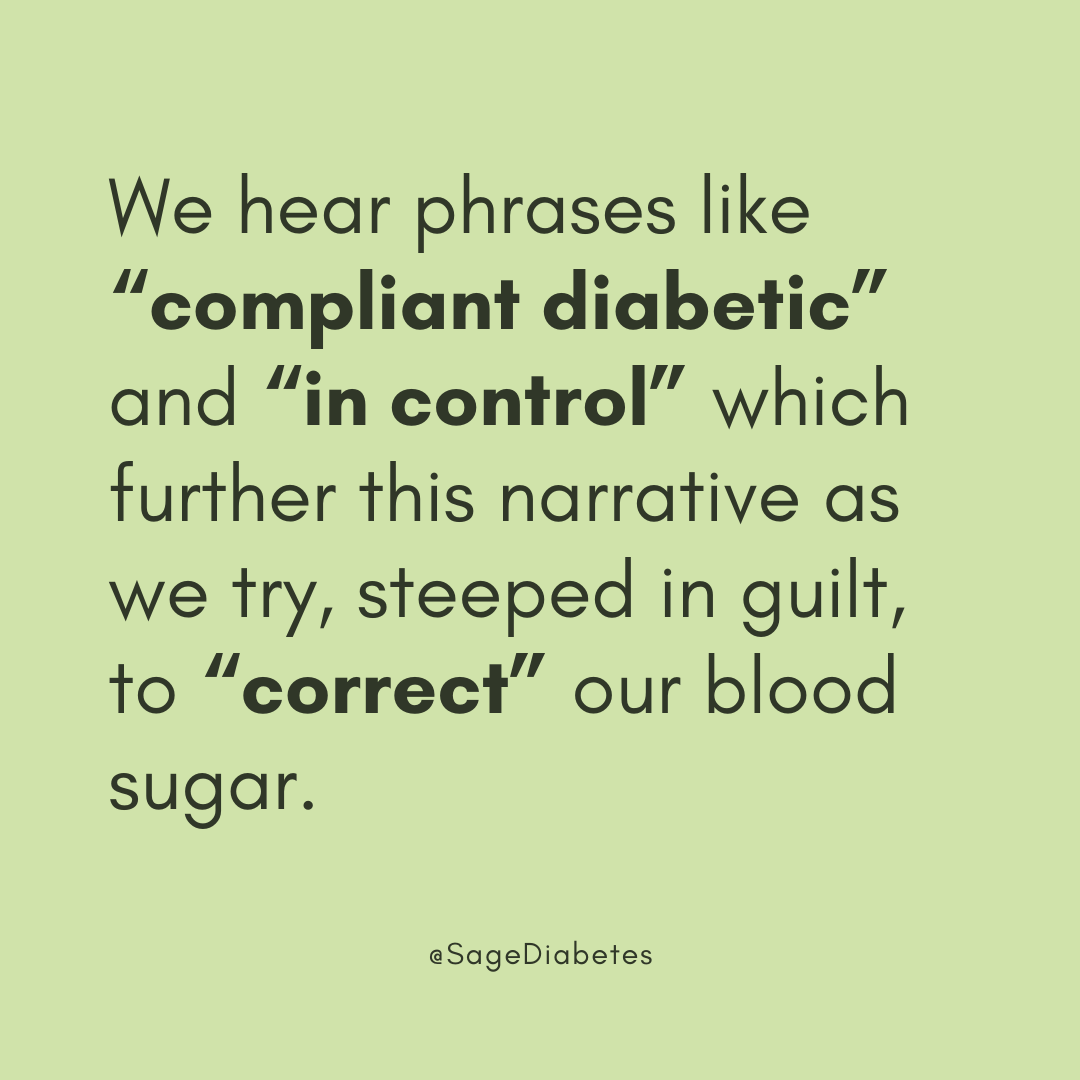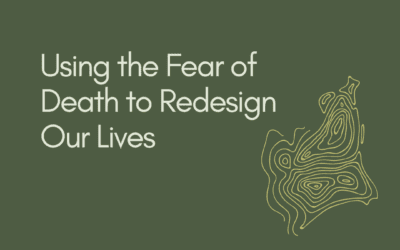The Myth of Perfection in Diabetes
Diabetes care can be performance-based, perfectionist, & punitive. We hear phrases like “compliant diabetic” and “in control” which further a myth of perfection in diabetes as we try, steeped in guilt, to “correct” our blood sugar. This sets us up for a strained relationship with our bodies.Our Performance-Oriented Culture
As living, organic humans, we’re naturally wired to grow. Growth is an inherent property of life. We want to reach new heights, just like a vine using the sunshine to crawl up the trunk of a tree. But somewhere along the way we got a little lost in the land of perfectionism.
When we’re learning how to interact with the world, many of us attend school to grow and learn. However, in most mainstream school systems, our performance was measured by the least amount of mistakes. School was a linear trajectory, with learning goals set out for us, and competition amongst our peers to get the highest grade. Even as schools start to soften and expand their ideas of success, a shaming culture around failure still sits in the shadows. This performance-, perfectionist-, and sometimes punitive-based culture exists in many areas of our world, including healthcare.

Belonging
“Perfectionism is a self destructive and addictive belief system that fuels this primary thought: If I look perfect, and do everything perfectly, I can avoid or minimize the painful feelings of shame, judgment, and blame.” ― Brené Brown, The Gifts of Imperfection
One of the repercussions of this belief system can be a fraying of community, and a longing for belonging. The need to belong is hard-wired into our species. Sticking together in tribes and communities is one way animals and humans adapted for better chances of survival. So when we feel the pressure to do something “right” to avoid judgement, it activates a fear of loss of group membership, and a fear of survival. Our nervous systems severely feel the effects of perfectionism, whether it’s at school, work, or the doctor’s office.
Perfectionism in Diabetes Care
My first year of diabetes was an anxiety show. I was told to keep my blood sugar between 70 and 180, and my mental models of perfection told me that I was “failing” at every. single. meal. (1) I tried! I counted my carbs and payed attention to all the details. But inevitably I veered up and down, and felt an overwhelming sense of failure, shame, and discouragement anytime that happened. I lasted for about a year before I ran myself into the ground.
During our doctor’s appointments, it feels like we get “graded” on our A1C, our Time in Range, and other blood work from the lab like Cholesterol. We might hear phrases like “compliant diabetic” and “in control” which further paint this narrative of strict parameters and punitive systems to “correct” our blood sugar. “Grading myself” on my blood sugar, even if subconsciously, set me up for a strained relationship with my body.

This illusion and myth of perfection took me a while to figure out on my own. No one told me that staying within that range was nearly impossible given the limitations of diabetes tools I had at the time.
Secondly, and more importantly, no one told me that “failure” is okay. That it’s how we learn. That life is inherently imperfect. And so is diabetes. So there will be many days where things don’t go according to planned. And that there can be beauty in that, if we adjust our expectations of our little human selves.
Yes, it’s important (and vital) to track and measure our blood sugar. Of course, we need to keep doing that. But can we bring in some more forgiveness, softness, and understanding? We Type 1’s are out here doing our best, all day, every day.Resources
If you’d like to improve your relationship with T1D, so you can enjoy life without the constant overwhelm, check out our free course: Surviving T1D with Less Stress. You can also check out all our offerings here: Sage Diabetes Offerings.(1) 70-180 mg/dL is the standard American Diabetes Association range, but is customized for each person with their provider.





0 Comments